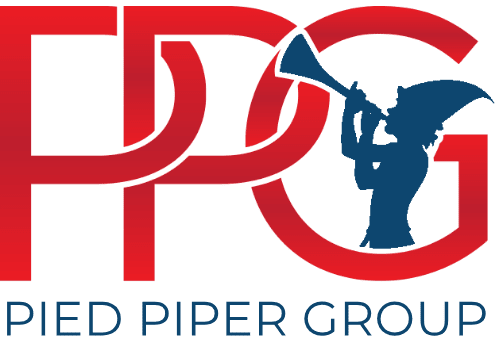
Accepting the mortgage rates advertised by your lender is one of the worst first-time home buyer mistakes that lead to financial burdens and pitfalls. It is perplexing to note that most first-time home buyers aren’t even aware of negotiation tactics that can help them save thousands of dollars during their 30-year loan repayment period.
Most first-time home buyer mortgage products come with specific rates advertised by banks, financial institutions, and lenders. However, first-time borrowers don’t have to accept these rates as they can always negotiate a better rate for their loan package.
For instance, suppose the advertised fixed rate for a five-year plan is 3%. In that case, you can negotiate the interest rate and try to bring it down to 2.5% or even 2%. Negotiation is one of the most crucial first-time home buyer rules to protect your financial interests and prioritize flexibility. Savvy negotiation skills can help you negotiate several contractual aspects, such as interest rates, cash-back advantages, and prepayment options.
It all boils down to saving money and conserving your financial resources for improved life quality and a brighter, more secure future. Instead of paying thousands of dollars to your lender, why not spend the amount on home improvement, upgrades, and renovations? Read on to learn how the art of negotiation can help you ensure a smooth and stress-free first-time home-buying process.
Table of Contents
Why Should you Negotiate?
Before we dive into tips and tricks, let’s ponder a crucial question: why should you negotiate? The answer is simple: to save money on your mortgage plan. Most borrowers spend their time seeking first-time home buyer tax credits and exemptions to reduce their costs but negotiation is the most powerful tool to devise a loan structure that aligns with your financial health and future goals.
It is crucial to explore multiple mortgage options and lenders and get quotes from multiple platforms before finalizing your loan plan. Negotiation can help you reduce certain fees, enjoy waivers and tax advantages, and minimize your monthly payments as much as possible.
Now, let’s explore some actionable tips to make you a savvy mortgage rate negotiator.
7 Tips for First-Time Homebuyers
- Determine the Right Type of Mortgage
- Understanding your Qualification Status
- improved your Credit Score and DTI Ratio
- compare Quotes from Multiple Platforms
- Factor in all the Costs Associated with the Loan
- Explore Discount Points to Negotiate a Lower Mortgage Rate
- Try to Make a Sizable Down Payment
Determine the Right Type of Mortgage
Finding the right type of mortgage is important to strengthen your negotiation position because each mortgage product has unique features and specifications. One of the most common first-time home buyer Reddit discussions revolve around finding the most advantageous mortgage option for inexperienced borrowers with minimal down payments.
If you don’t want to incur thousands of dollars of avoidable payments on your loan, you need to identify the right mortgage option for your financial needs.
The most common mortgage types include:
⦁ Adjustable-Rate Mortgages
Adjustable-rate mortgages are subject to change after a specified time period, as interest rates are adjusted in accordance with economic trends and the contractual terms in the loan agreement. These adjustable-rate mortgages seem appealing to borrowers who seek a low introductory rate. However, the interest rates and monthly payments can increase dramatically over time.
⦁ Conventional Mortgages
A conventional home loan is an advantageous mortgage option as it offers the most competitive and favorable interest rates on the market. However, these conventional loans are ideally suited for borrowers with healthy credit scores, financial stability, and income and job security.
⦁ Fixed-Rate Mortgages
Fixed-rate mortgages are appealing to borrowers who seek flexibility and predictability because they offer the same interest rate throughout the entire loan repayment period. The down payment, closing costs, and monthly payments are predictable, leaving ample room for negotiation.
⦁ Government-Backed Loans
Government-backed mortgage options like FHA, VA, and USDA loans, offer a flexible qualification process and financial security. These loans are backed by the concerned federal or state-run agencies that offer lenders protection against the loan in case the borrower defaults.
⦁ Jumbo Loans
Jumbo loans allow first-time borrowers to collect larger loans than offered by most lenders, as mortgage products are subject to specific conforming limits.

Understanding your Qualification Status
Understanding how much you can qualify for is the first step to strengthening your position and navigating the market from a strong position. In order to determine the interest rate lenders will offer you, you must evaluate your current financial situation and your credit score.
Borrowers with a healthy credit score and a strong financial position are offered the most favorable mortgage rates with a smooth loan qualification process. You can explore first-time home buyer credits and advantages, but improving your credit score is highly advisable for a smooth home-buying journey.
⦁ Improve your Credit Score and DTI Ratio
We strongly advise first-time borrowers to enter the mortgage market after taking the necessary steps to improve their credit scores and debt-to-income ratios. Financial institutions and lenders scrutinize credit scores and DTI ratios to examine the borrower’s debt management abilities. A healthy credit score and DTI ratio reflect a discipline borrowing ethic and a responsible attitude toward managing and paying off liabilities.
If you’re clueless about your credit score and spending patterns, you can start by requesting your credit report from the three credit bureaus, Equifax, Experian, and TransUnion. Then, request your financial statements and credit card statements from your bank and reflect on these documents. These documents will offer valuable insight into your spending patterns, credit utilization, and debt accumulation patterns.
When we make day-to-day payments on our credit cards, like splurging at Target and shopping seasonal sales, we end up spending much more than we intend to spend. Lowering your DTI ratio and improving your credit score will help you negotiate a highly favorable interest rate on your mortgage plan.
One powerful strategy to improve your credit score and DTI is to pay off your debt as quickly as possible, and you can achieve this set up a new income stream with a part-time job or side hustle. It is also advisable to end existing lines of credit and stop using your credit card for any purchase unless it’s an emergency.

Compare Quotes from Multiple Platforms
After your financial health has improved and you’ve embraced stability with a healthy debt-management ethic, you need to start scouting the market for the most favorable and competitive interest rate. You can begin by requesting quotes from multiple lenders and comparing interest rates across the market.
Comparison shopping is the most effective strategy to save thousands of dollars. Research by Freddie Mac, America’s largest residential mortgage buyer, reveals that receiving just one additional quote can help borrowers save as much as $1500 on their mortgage. And receiving five quotes from different lenders can grow your savings to $3000.
Borrowers can take advantage of the digital tools offered by lenders and financial institutions on their websites to request quotes and run comparisons.
Factor in all the Costs Associated with the Loan
Most first-time borrowers make the terrible mistake of focusing entirely on the mortgage rate and monthly payments, neglecting other costs associated with the loan. Focusing on the total costs will strengthen your negotiation position and help you save money. Closing costs, upfront fees, and broker’s commission can add up and push the total loan costs outside the borrower’s affordability threshold.
Borrowers will have to cover the upfront costs and fees during the closing period, while other costs can be added to the loan amount and monthly payment. Now, which costs are negotiable, and which expenses cannot be negotiated?
You can negotiate and convince the lender to waive the application fee or offer a discount on the loan origination costs. However, you cannot negotiate the appraisal fee as this expense is typically set by the appraisal firm.
Explore Discount Points to Negotiate a Lower Mortgage Rate
Discount points are a formidable negotiation tool to negotiate a favorable mortgage rate by paying fees in exchange for the rate reduction. For instance, if you want to reduce your mortgage rate by 1%, you will have to pay an amount equivalent to 1% of the total loan amount.
Most first-time borrowers wonder whether discount points are worth considering since they come with additional fees and multiple pros and cons. We encourage borrowers to examine the advantages and drawbacks and examine how discount points can benefit their current financial situation and future aspirations.
Let’s explore some of the advantages associated with discount points:
⦁ Reduced Interest Rates
Discount points are a highly viable strategy to negotiate a lower interest rate – one that is favorable to your financial needs, provided you can pay off the associated fee.
⦁ Reduced Monthly Payments
Selecting a favorable and lower interest rate will help you devise a flexible monthly payment plan with reduced payments.
⦁ Tax Exemptions
Borrowers can benefit from first-time home buyer tax deductibles if they itemize their deductions carefully while filing their tax returns. It is also important to address all requirements for deductions on mortgage interest. Once all requirements are met, borrowers can benefit from tax exemptions on the money they paid for discount points.
While the advantages of discount points are quite lucrative, it is important to note that they can increase your closing costs significantly. If you’re prepared to make a hefty upfront payment, you can explore this option. But if you’re extracting money from your down payment, this option isn’t worth considering.
It is also crucial to understand that investing more money into the upfront payments demands spending more time on the property you’re buying in order to break even and reap advantages. If you don’t plan to stay long in your new home, you won’t be able to benefit from the savings you’ve worked hard to negotiate on your mortgage loan.

Try to Make a Sizable Down Payment
Modern-day borrowers can benefit from a wealth of first-time home buyer advantages, government-back schemes, and mortgage options designed for borrowers with as low as a 2% to 5% down payment. While these options are quite lucrative, they don’t necessarily facilitate a flexible and favorable mortgage repayment plan.
In order to achieve the utmost affordability and flexibility, your goal should be to target the lowest interest rate, which will automatically lead to lower monthly payments. Previously, a 20% down payment was considered the gold standard for negotiating a favorable interest rate and flexible monthly payments. Even though the market is brimming with new home loans and competitive mortgage options, the gold standard hasn’t changed.
Putting a bigger down payment will reduce your long-term liabilities considerably, increasing your equity and supporting a flexible loan repayment process. It will reduce the overall loan balance, and strengthen your negotiation position considerably as lenders will not see you as a risky investment.
Final Thoughts
The key to negotiating a favorable interest rate lies in diligent research and identifying the most favorable mortgage options in the market. Comparison shopping will strengthen your negotiation position, and empower you with the resources needed to devise a favorable and flexible loan repayment plan. The three most formidable elements to strengthen your negotiation position are credit scores, debt-to-income ratio, and a hefty down payment.
Frequently Asked Questions (FAQs)
How do I get my lender to lower my interest rate?
You can negotiate a lower interest rate with the following strategies:
⦁ Offering your lender a hefty down payment
⦁ Negotiating reduced closing costs
⦁ Improving your credit score and DTI ratio
⦁ Paying off existing debt
⦁ Ending unnecessary lines of credit
⦁ Exploring discount points
Can you negotiate mortgage rates with the bank?
You negotiate mortgage rates on a home loan with any financial institution, be it a bank or a lender, as long as you have a strong negotiating position.
Should I pay to lower my interest rate?
Paying discount points to reduce your interest rate is a lucrative strategy to save thousands of dollars over the years, provided you have the financial strength and reserves to pay sizable closing costs. It is important for borrowers to consider discount points after evaluating the pros and cons and their current financial standing to avoid future implications.

